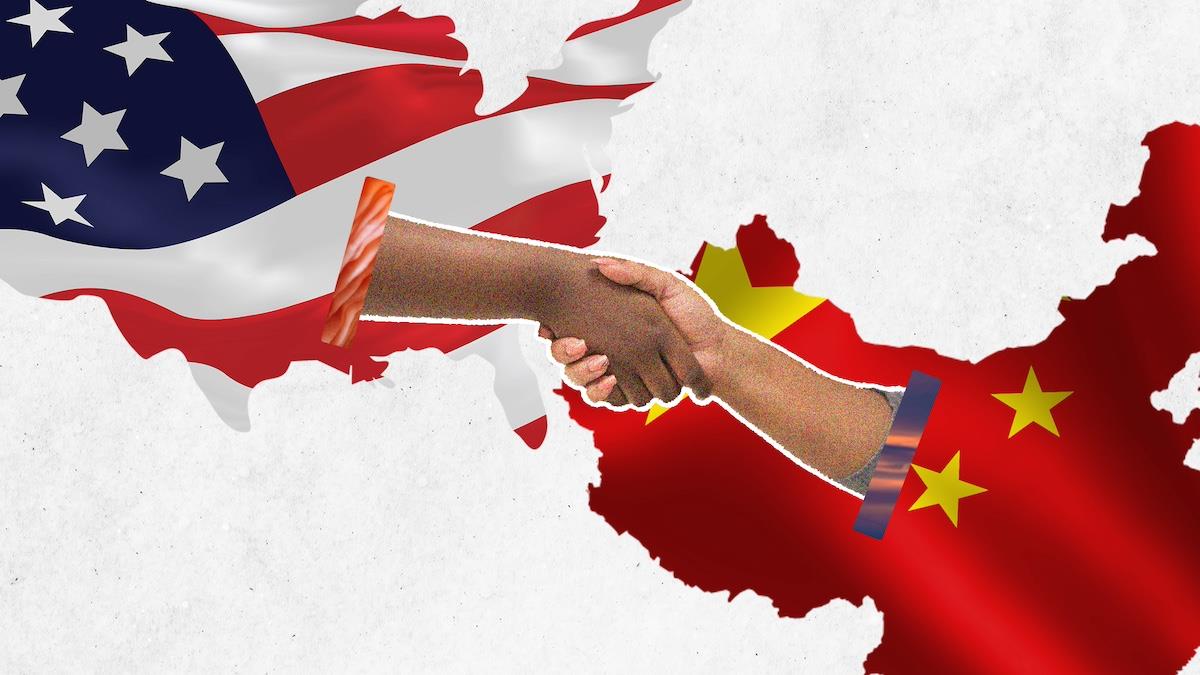
Rhetorics Of Refusal Deny America's Deep Decline
Then social problems arise that persist or worsen inside such societies because they are unsuccessfully navigated or go unattended. Sometimes, the dominant conscious reaction to such social problems is denial, a refusal to see them.
Denial of internal social problems displaces navigating the contradictions that cause them. The resulting social decline, like the set of internal contradictions it reflects, is denied and ignored. Instead, narratives or rhetorics can arise that position such societies as victims of abuse by foreigners.
The United States in 2025 illustrates this process: its rhetorics of refusal aim to end its victimization.
In today's United States, one such rhetoric refuses to allow continued abuse by foreigners“threatening our national security.” This rhetoric blames bad US political leadership for its failure to put America first and thereby make it great again.
Another rhetoric demands that“we” refuse to allow“our democracy” to be destroyed by foreign enemies (and their domestic equivalents): people who are said to hate, not understand, or undervalue“our democracy.”
Still another rhetoric of refusal sees foreigners“cheating” the United States in trade and migration processes. Most Americans embrace one or more of such rhetorics. Yet, as we propose to show here, such rhetorics are ever less effective.
One reactionary rhetoric, Trump's, gestures toward former greatness by literally renewing American imperialism. He threatens to retake the Panama Canal, change Canada into the 51st of the United States, conquer Greenland from Denmark, and possibly invade Mexico.
All those foreigners are said to threaten national security or else“cheat” the United States. Trump's typical bloviating aside, this is remarkable expansionism. Such repeated colonialist gestures feed broader notions of making America greater again .
Colonialism repeatedly helped European capitalism navigate its internal contradictions (temporarily escaping the social problems it caused). Eventually, however, it could no longer do so. After World War II, anti-colonialism limited that escape.
The subsequent European neo-colonialisms and the informal colonialism of the American empire had shorter life spans. China and the rest of the BRICS countries are now everywhere closing that escape. Hence the frustrated rage of Trump's insistence on refusing that ending by deliberately reopening the idea of an escape hatch of colonial expansions.
It resembles Netanyahu's idea (if not yet his violence) in trying to reopen that hatch for Israel by driving Palestinians out of Gaza. United States support for Netanyahu likewise associates the US with colonialist violence in a world overwhelmingly committed to end colonialism and its unwanted legacy.
The United States boasts the world's strongest military establishment. The dominant rhetoric in the United States casts everything it does as self-defense necessitated by foreign enemies.

Legal Disclaimer:
MENAFN provides the information “as is” without warranty of any kind. We do not accept any responsibility or liability for the accuracy, content, images, videos, licenses, completeness, legality, or reliability of the information contained in this article. If you have any complaints or copyright issues related to this article, kindly contact the provider above.


























Comments
No comment